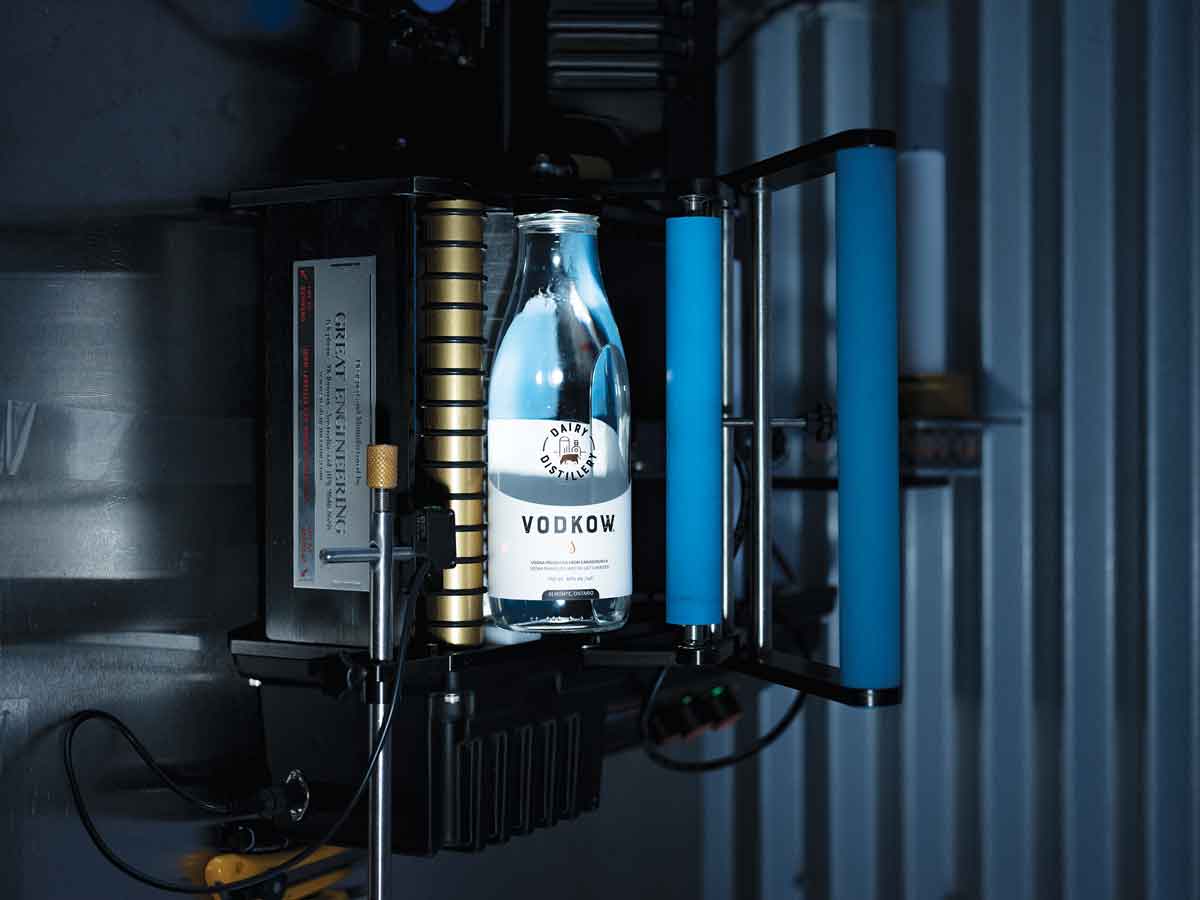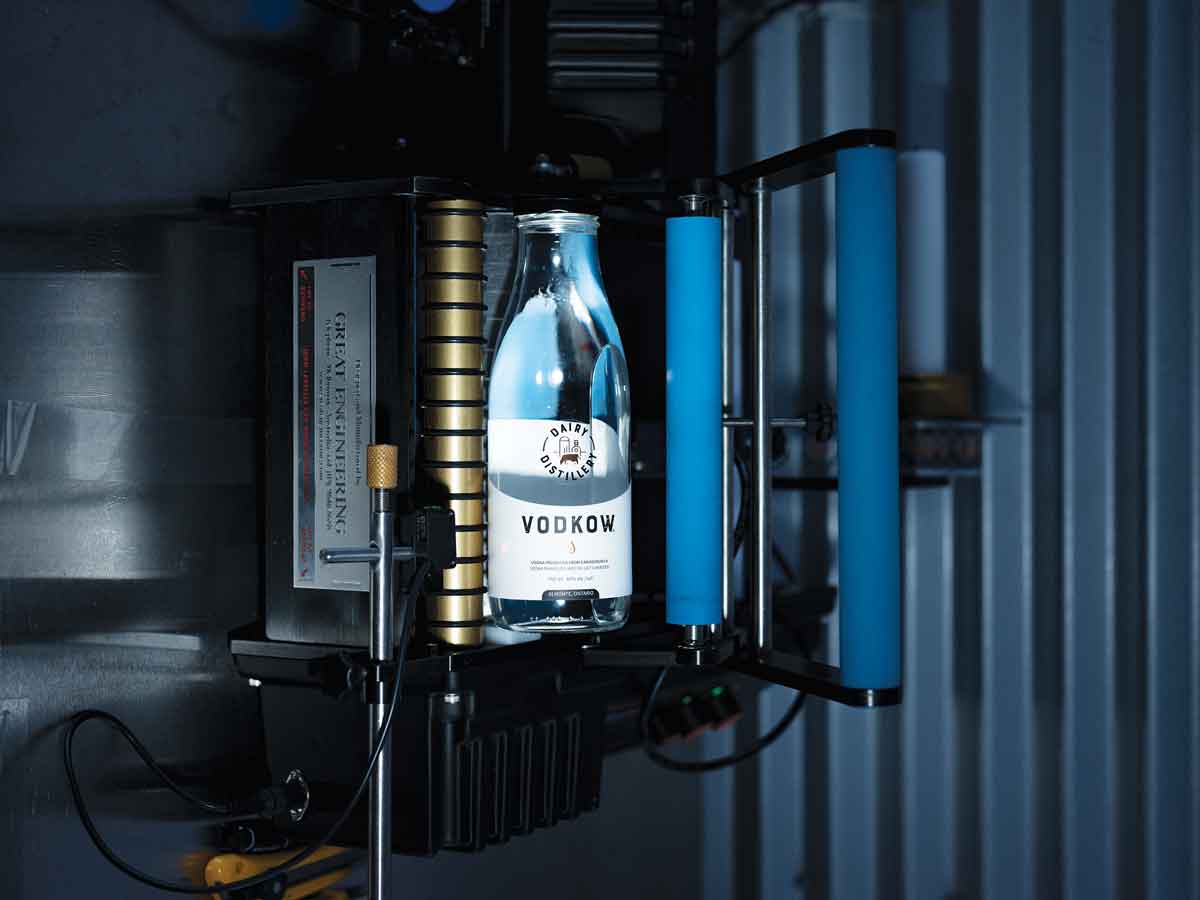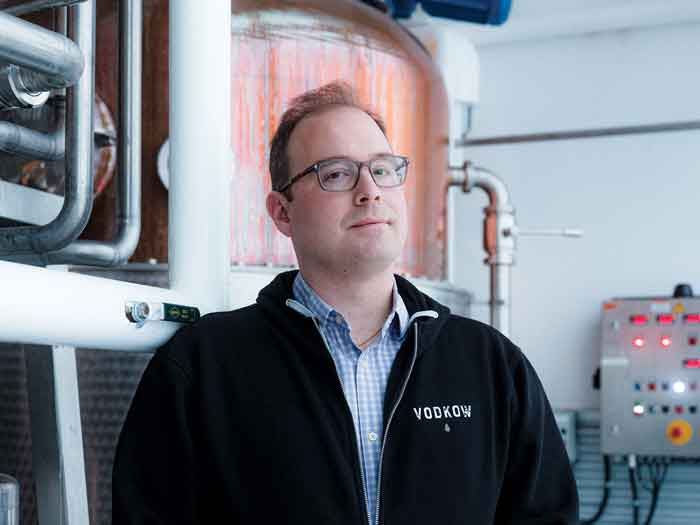
This Ontario distillery turns milk by-products into vodka
 The distillery produces about 5,000 bottles of Vodkow a week (Photograph by Alexi Hobbs)
The distillery produces about 5,000 bottles of Vodkow a week (Photograph by Alexi Hobbs)
When Omid McDonald tells people he makes vodka from milk, they often ask the same question: How is that possible? “They think it’s pretty crazy,” he says. “Then they taste it.”
McDonald, 47, is the founder of Dairy Distillery, a three-year-old business in Almonte, Ont., that produces a spirit called Vodkow. It’s smooth and easy to drink straight, with a slight vanilla note—and no indication that cows were involved in its creation.
In 2016, McDonald—who has worked in the healthcare and software industries—learned from a cousin that the dairy industry dumps vast amounts of milk permeate, the lactose-rich component that’s left over when milk is forced through a membrane to make a high-protein, low-sugar type of milk used in the production of cheese and yogurt. Alcohol is produced by fermenting sugar—typically from potatoes or grains in vodka’s case, but McDonald reasoned that milk permeate would work, too. “I was always fascinated with craft distilling and moonshining in my basement,” he says.
 Omid McDonald, the founder and CEO of Dairy Distillery (Photograph by Alexi Hobbs)
Omid McDonald, the founder and CEO of Dairy Distillery (Photograph by Alexi Hobbs)
It takes about a week for McDonald and his team of six full-time staff to make a batch of Vodkow. Every Friday, a truck from a large dairy arrives at the distillery with 20,000 litres of milk permeate. The permeate is placed into fermenter vessels, where it is introduced to a special kind of yeast developed by a biology team at the University of Ottawa. “Most yeast won’t touch lactose—they are lactose intolerant, as it were—but our yeast loves it,” says McDonald.
Next, the fermented permeate is triple-distilled in two custom-built copper stills. The rising vapour condenses into almost pure alcohol, more than 96 per cent. To reach the 40 per cent alcohol content of vodka, the alcohol is blended with distilled water and then given a final carbon-filtration treatment. Because of the fermentation process, no milk by-product actually ends up in Vodkow, which is sugar-, lactose- and gluten-free.
The Dairy Distillery and others like it—a similar business, Black Cow Vodka, operates in the U.K.—aren’t just a savvy business idea. They also address a pressing environmental problem. McDonald says that the dairy he deals with, Canada’s largest, produces 150,000 litres of milk permeate every day. Disposing of that permeate safely is costly, and just dumping it down the drain can harm local ecosystems and kill marine life. “We are using something that would otherwise be wasted,” says McDonald. “The environmental aspect of our story is what really gets people excited.”
READ MORE INSPIRING STORIES
Learn why Knix founder Joanna Griffiths is shaking up the intimates market and how losing a loved one—and nearly his own life—inspired Kevin Oulds to help Canadians plan for the end.